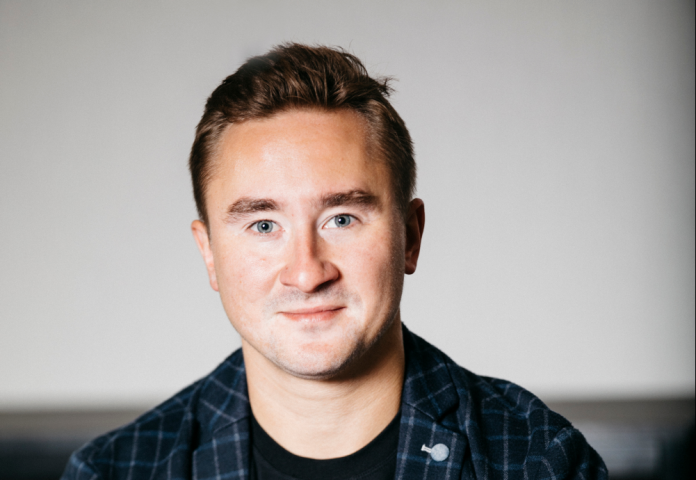Nicholas Chepesiuk started his journey with OnCall Health in 2016. As CEO, he has led the tech company to growth and success as an industry leader.
Under the leadership of Nicholas Chepesiuk, OnCall Health has asserted its unique position as the “chosen virtual care program vendor for some of the largest healthcare brands in North America.”
At OnCall Health, Nicholas Chepesiuk leads a tech company that “enables healthcare providers to launch and grow their own virtual healthcare programs.” OnCall Health enjoys steady growth, with more than 1 million virtual health appointments every year.
As CEO, Nicholas Chepesiuk also takes care to build a company culture “around total transparency, valuing ideas over hierarchy and data over opinions.” He feels confident that OnCall Health will become a “world-class, industry-leading company” in Canada.
Nicholas Chepesiuk makes sure his company stands out from the rest. OnCall Health offers “software to enable virtual health programs for healthcare organizations that already have the providers and patients.”
With OnCall Health, Nicholas Chepesiuk also works to realize his passion of promoting its social impact. The company also allows healthcare organizations to “provide continuity of care and engage with patients in a way that aligns with their practice.”
Check out more interviews with healthcare pioneers here.
We take a different approach than most other companies in our industry. Nicholas Chepesiuk, OnCall Health
Jerome Knyszewski: What do you think makes your company stand out? Can you share a story?
Nicholas Chepesiuk: We take a different approach than most other companies in our industry.
Instead of providing a virtual health service to consumers and employers, we provide software to enable virtual health programs for healthcare organizations that already have the providers — such as doctors, therapists, or nurses — and patients.
From a brand perspective, we provide an enterprise solution that can be white-labeled by healthcare providers, which means our brand is less visible in the market compared to the consumer applications that operate more like a virtual walk-in clinic.
However, our ability to enable healthcare organizations to provide continuity of care and engage with patients in a way that aligns with their practice, is what makes us stand out in the healthcare community.
I’ve also worked hard with my team to build our company’s culture around total transparency, valuing ideas over hierarchy and data over opinions.
I feel confident that we can build a world-class, industry-leading company here in Canada.
I am passionate about the social impact of OnCall’s business, especially in a time where virtual care is needed to alleviate the challenges faced through the pandemic.
Jerome Knyszewski: Often leaders are asked to share the best advice they received. But let’s reverse the question. Can you share a story about advice you’ve received that you now wish you never followed?
Nicholas Chepesiuk: I received some advice early on to only show our product to qualified prospective customers so that a potential competitor would not be able to see how our technology worked.
I think that may work for some companies, but I’ve learned over time that it’s better to assume that if your competitors want to see what your product looks like, they’ll find a way; and that it’s better to just get as many eyeballs on your product and as much feedback as possible.
Ultimately, it will lead to more awareness and more sales opportunities.
I believe that to lead a team you need to have a great deal of confidence in yourself and your plan.
Jerome Knyszewski: You are a successful business leader. Which three character traits do you think were most instrumental to your success? Can you please share a story or example for each?
Nicholas Chepesiuk: Confidence, empathy, and self-discipline. I believe that to lead a team you need to have a great deal of confidence in yourself and your plan.
You can grow your company as big as your imagination takes you. If you don’t believe in your plan, who will?
Also, I think it’s super important to build a culture that includes empathy, because your people are truly your most valuable asset.
Mistakes are going to happen, and you have to let people make them and learn from them.
As for self-discipline, when you’re running a company, you may not have anyone looking over your shoulder to see what you’re working on.
So you have to set the standard for work ethic in your company by working as hard as or harder than anyone and you have to be self-driven to show up and do it every day.
Jerome Knyszewski: Which tips would you recommend to your colleagues in your industry to help them to thrive and not “burn out”?
Nicholas Chepesiuk: Too many entrepreneurs experience burnout, but don’t recognize what it looks like. To prevent burnout, I would highly suggest speaking with a therapist as a proactive measure.
You can now access many therapists from the privacy and comfort of home via video conferencing.
Raising capital from investors can be a fantastic accelerator.
Jerome Knyszewski: What are the most common mistakes you have seen CEOs & founders make when they start a business? What can be done to avoid those errors?
Nicholas Chepesiuk: At least in my experience, early in my CEO days, I was really uneasy about spending money and was mostly unwilling to raise capital from investors.
I did this because I wasn’t confident that the business would succeed, and I wanted to retain equity.
But I would say that if you are starting a business in which there is a real market opportunity, you should push yourself to move fast.
Raising capital from investors can be a fantastic accelerator.
Jerome Knyszewski: In your experience, which aspect of running a company tends to be most underestimated? Can you explain or give an example?
Nicholas Chepesiuk: For companies that create a product, product/market fit can be extremely elusive.
You may think you’ve found it, then a new customer comes into the fray and changes your perspective, or the dynamic of the market you’re in unexpectedly changes.
You have to be ready to adapt, constantly reassess your assumptions, and always have a sort of “the enemies are at the gates” mentality to stay ahead of the game.
To prevent burnout, I would highly suggest speaking with a therapist as a proactive measure. Nicholas Chepesiuk
Jerome Knyszewski: You are a person of great influence. If you could start a movement that would bring the most amount of good to the most amount of people, what would that be? You never know what your idea can trigger. 🙂
Nicholas Chepesiuk: Something that I am really passionate about is improving access to healthcare — it underlies our mission at OnCall. Most people don’t have an employer that pays for a virtual healthcare plan.
Living in a city, it’s also easy to forget that there are still many communities that don’t have the internet connectivity or personal devices to be able to access virtual healthcare.
I would advocate for any initiative that supports improving rural internet connectivity, as well as working directly with governments and insurers to create more equitable access to virtual healthcare appointment options.
Jerome Knyszewski: How can our readers further follow you online?
Nicholas Chepesiuk: The best way to reach me is on LinkedIn. Search for Nicholas Chepesiuk.
Jerome Knyszewski: This was very inspiring. Thank you so much for the time you spent with this!





